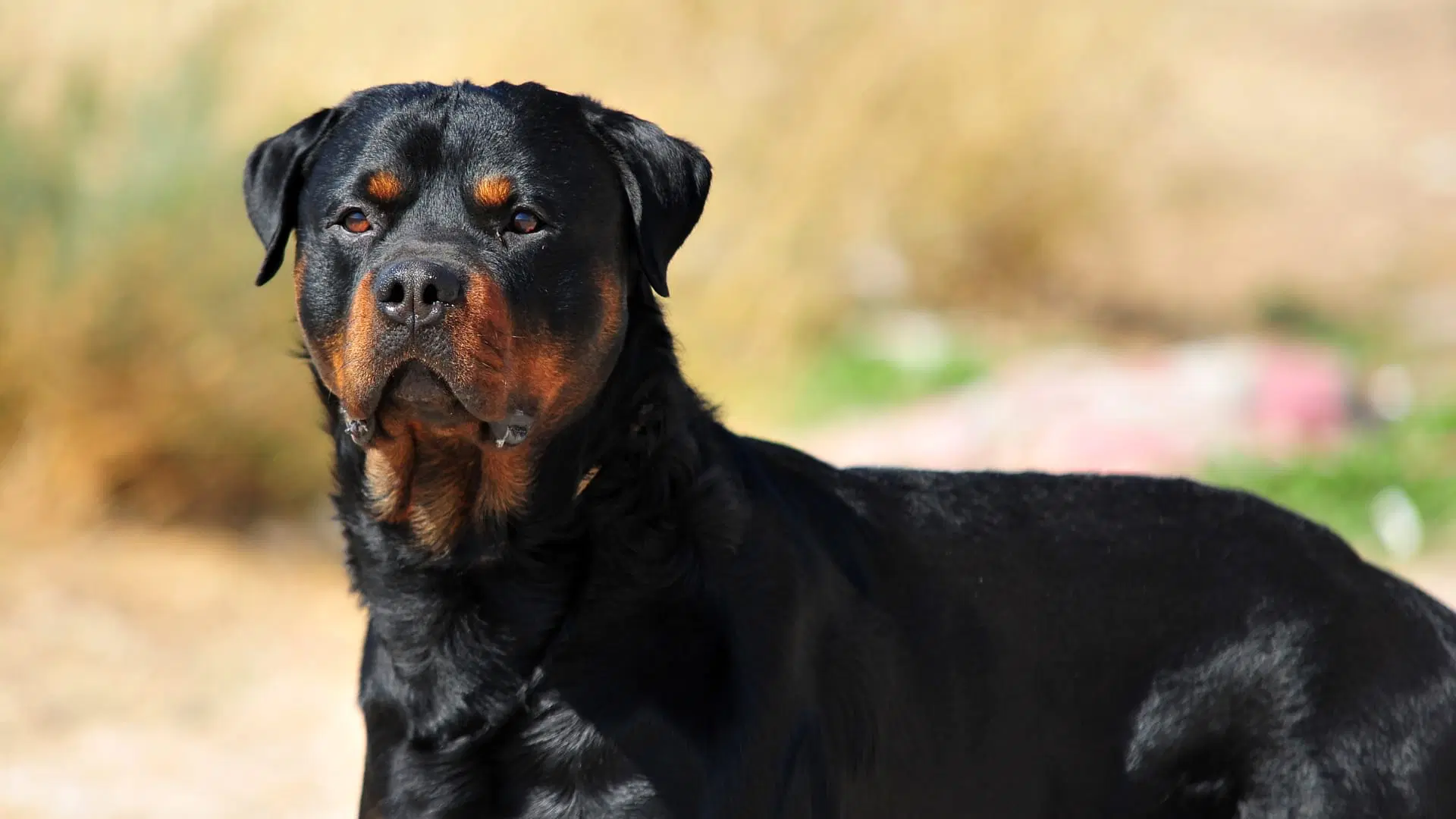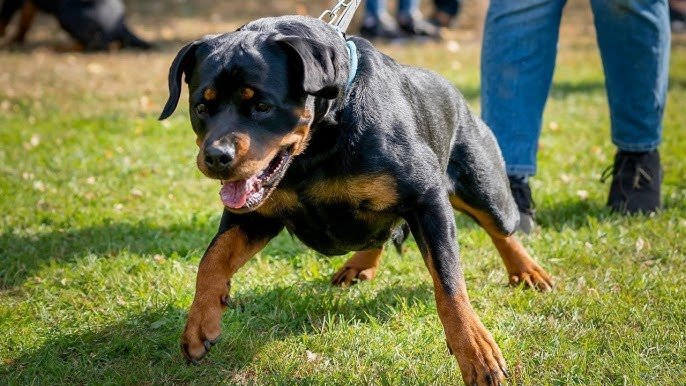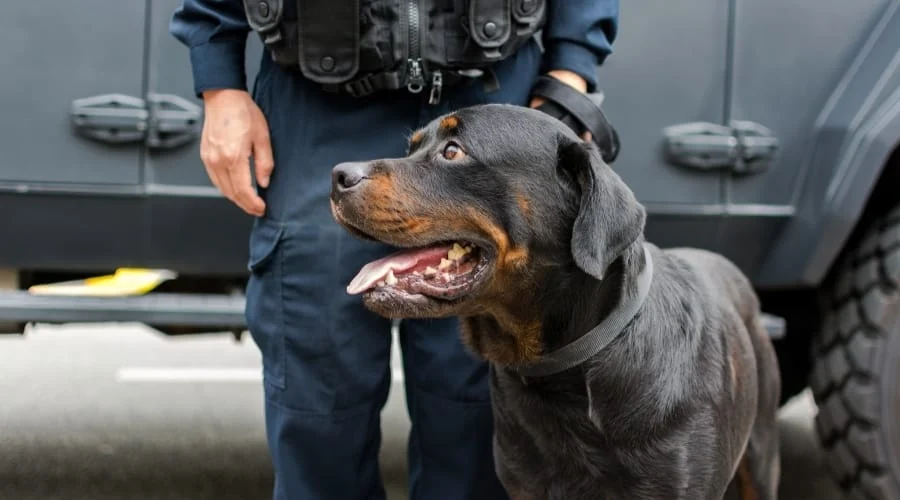Understanding the Rottweiler’s Protective Instincts
Rottweilers are renowned for their protective nature, a trait that has been part of the breed for centuries. Known as one of the most loyal and courageous dog breeds, Rottweilers are often sought after as guard dogs, family protectors, and even working dogs for various roles, from police to search and rescue.
While this protective instinct is one of the breed’s defining qualities, it can sometimes be misunderstood. It’s important for owners to understand how these instincts manifest, how to channel them appropriately, and how to ensure a balanced, well-behaved dog. Here’s a closer look at the Rottweiler’s protective instincts and how to manage them effectively.
Why Do Rottweilers Have Protective Instincts?
Rottweilers were originally bred for a variety of tasks that required strong protective traits. Their ancestors were used by Roman soldiers to guard livestock and later served as herding and guarding dogs in Germany. Over the years, these natural instincts have been enhanced and remain deeply ingrained in the breed.
Key factors contributing to their protective nature include:
- Guarding History: The Rottweiler’s role as a guard dog was a central part of its original purpose. Whether it was protecting livestock, homes, or even its human family members, this instinct remains strong in modern Rottweilers.
- Territorial Nature: Rottweilers are territorial by nature, and they often feel a strong urge to protect what they consider “theirs”—including their home and family members.
- Loyalty to Family: Rottweilers are known for their unwavering loyalty to their owners. They are naturally inclined to protect those they love and will do so with great determination if they sense a threat.
How Rottweilers Express Their Protective Instincts
Rottweilers are not aggressive by nature, but they do have specific ways of expressing their protective instincts. Understanding these behaviors can help you differentiate between appropriate and inappropriate displays of protection.
- Alertness to Strangers: Rottweilers are often reserved around strangers and will show caution when someone new approaches. They may bark, stand tall, or position themselves between the stranger and their family. This is a natural defensive mechanism, signaling to the stranger that they are being watched.
- Guarding Behavior: Rottweilers are likely to exhibit guarding behaviors, such as standing watch over their home or personal space. If they feel that their territory is threatened, they may become more vocal or stand their ground. This includes guarding their food, toys, or even their favorite people.

- Physical Protection: In certain situations, a Rottweiler may physically intervene to protect their family or territory. This could involve standing between the family and an intruder, showing a heightened sense of aggression towards perceived threats. This trait is part of their natural instincts, but it’s important to control it through proper training.
- Separation Anxiety and Protection of Family Members: Rottweilers may also exhibit protective behavior when their family members are separated. This can be seen in their heightened alertness when a family member leaves the house or when they are left alone for long periods.
Managing the Rottweiler’s Protective Instincts
While Rottweilers’ protective instincts are valuable and make them excellent guard dogs, they can sometimes lead to issues if not properly managed. Unchecked protection can lead to behaviors like excessive barking, aggression toward strangers, or over-attachment to family members. Here’s how you can manage and channel your Rottweiler’s protective instincts effectively:
- Early Socialization: One of the best ways to ensure your Rottweiler’s protective instincts don’t lead to fear or aggression is early socialization. Exposing your dog to different people, animals, and environments as a puppy helps them understand what’s normal and safe. This reduces the likelihood of overreacting to harmless stimuli or strangers.
- Obedience Training: Consistent training is key to managing your Rottweiler’s protective instincts. Commands like “sit,” “stay,” and “leave it” are essential for redirecting any protective behavior and ensuring the dog listens to your authority. Rottweilers are highly intelligent and responsive to training, so establishing clear boundaries from an early age will pay off.
- Positive Reinforcement: Reward your Rottweiler for calm and well-behaved behavior when they encounter strangers or situations that trigger their protective instincts. Use treats, praise, and affection to reinforce positive responses, which helps them understand the difference between a real threat and a non-threatening situation.
- Preventing Over-Protectiveness: While it’s normal for Rottweilers to be protective, it’s important not to let their guarding tendencies become overbearing. Teach your Rottweiler to differentiate between real threats and normal daily occurrences. Over-protectiveness can sometimes be linked to anxiety, so providing a stable environment and addressing any underlying issues can help keep the behavior in check.
- Managing Territorial Behavior: Rottweilers often display territorial behavior, especially in their home environment. If this becomes problematic, such as excessive barking at visitors or aggression toward neighbors, it’s important to correct this behavior early on. Controlled introductions to new people and situations will teach your Rottweiler that not every new presence is a threat.
Rottweilers as Family Protectors: Balancing Protection with Affection
While Rottweilers are often seen as powerful protectors, they can also be affectionate, gentle companions for their families. With the right training and management, a Rottweiler can balance their protective instincts with a loving, well-behaved demeanor. They tend to be particularly good with children when socialized properly, showing gentle affection while still being alert and protective when necessary.
For families looking for a dog that can provide both protection and affection, a well-trained Rottweiler is an excellent choice. Their protective nature can make them excellent guardians for homes and loved ones, while their loyalty and devotion to their family ensure they are equally capable of being loving companions.
Conclusion: Harnessing the Power of the Rottweiler’s Protective Instincts
Rottweilers are an incredibly loyal and protective breed, and when their protective instincts are managed correctly, they make excellent companions for families and individuals alike. Whether you’re looking for a guard dog, a loyal family member, or both, understanding the breed’s protective nature is crucial.
By providing early socialization, consistent training, and clear boundaries, you can ensure that your Rottweiler’s protective instincts are kept in check while allowing them to flourish as a loving and dependable companion.








